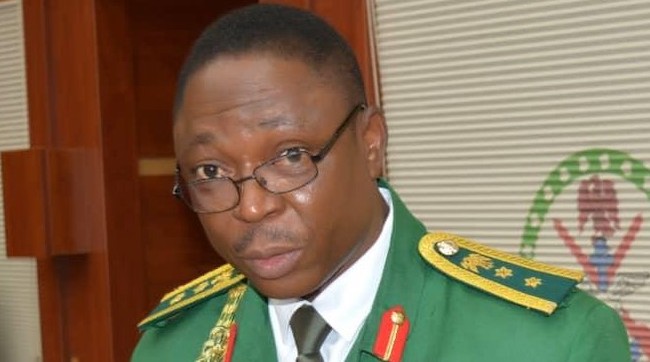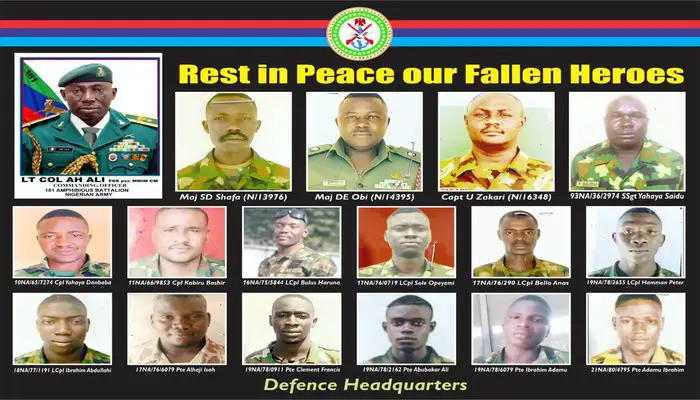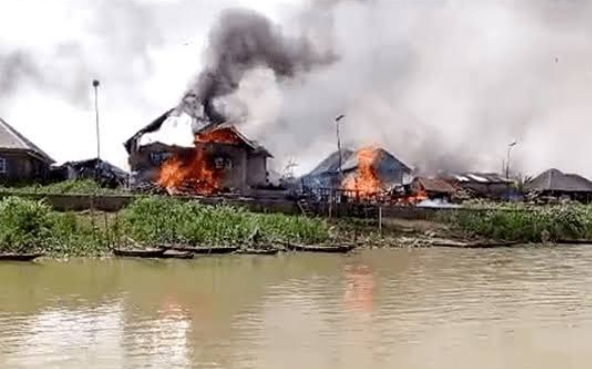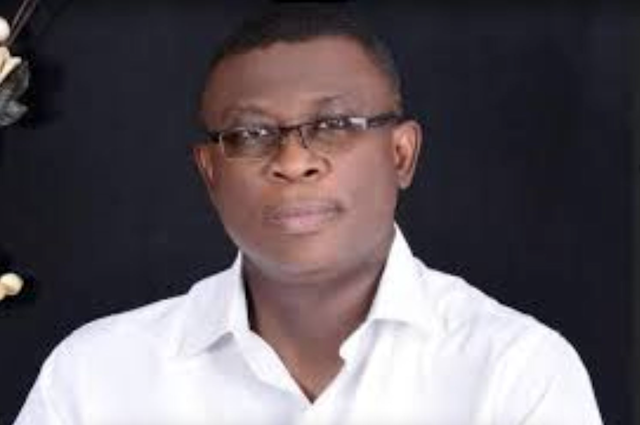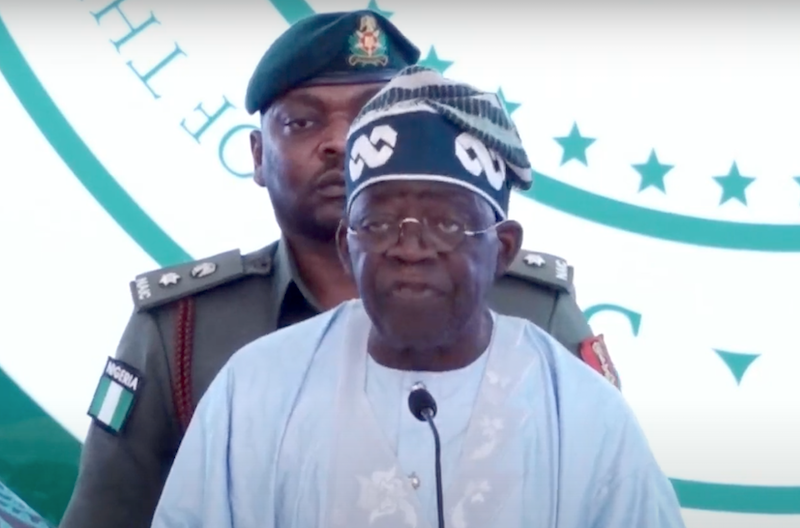A cross section of Nigerians have condemned the recent killing of soldiers in Delta, saying any attack on security personnel is a direct threat to public order and rule of law, and an offence that is worse than treason.
They said such attacks are unacceptable and must be condemned by all well-meaning citizens.
They added in separate interviews that example must be set of those who killed the military personnel at Okuama in Delta, so as to dissuade a repeat of the dastardly act.
The respondents, however, said the situation highlighted the need to redesign the internal security architecture of the country to provide adequate protection to citizens.
Some of the respondents said government should be more responsive and ensure social justice to significantly curtail crisis in communities that will require the intervention of the military and police.
Dr Sani Abubakar, an expert in Military Studies, described the attack on the military personnel as a threat to the existence of the Nigerian state.
According to him, the gruesome murder of the 16 officers and soldiers is a crime of monumental proportion, worse than treason.
“No serious government in the world will keep quiet and allow non state actors to not only use violence against civilians but also against its armed forces to the extent of killing colonels and majors to go scot free,” he added.
He recalled that a similar incident occurred in 1999 in Odi, Bayelsa during the tenure of former President Olusegun Obasanjo.
Abubakar said though Nigeria has been a fragile country divided along ethno-religious lines affecting virtually every fibre of the society, the military remained the only institution that has kept the country united.
“They have their own challenges, but just go to any military barrack and you will see unity and patriotism in display.
“We should not allow this unique institution that is strategic to the collective survival of Nigeria to be desecrated.
“The perpetrators of this heinous act must be fished out and punished,” he added.
Also, Dr Martins Idachaba, a Senior Lecturer at the Department of Law, Prince Abubakar Audu University, Anyigba in Kogi, said the killing was barbaric, cruel and totally unacceptable.
“It should not be tolerated by Nigerians and any sane society,” he added.
Idachaba said that for a nation already combating high level of insecurity, the killing of its security personnel, who put their lives on the line for the nation, would be too much a burden to bear.
“These security operatives are making a lot of sacrifices in their line of duty, and in some cases pay the supreme price.
“As citizens and stakeholders in the Nigerian project, we must all be deliberate in appreciating and valuing them and the humongous sacrifices they make in protecting Nigerians.
“I must outrightly say without mincing words and fear of contradiction that the killing no doubt is barbaric, cruel and totally unacceptable and should not be tolerated by Nigerians and any sane society”.
Idachaba agreed to the need to conduct an impartial investigation involving international human rights organisations, and bring those responsible to justice.
The lecturer urged the Nigerian military to restrain its officers and ensure that the rights of innocent civilians were not violated, stressing that all citizens are entitled to the right to life.
“I encourage them not to be dispirited by these ugly developments but see it as a challenge to increase their efforts in their duties,” he added.
Similarly, Dr Abdullahi Jabi, Secretary-General, International Institute of Professional Security, said severe punishment should be melted out to those behind the killings.
Jabi said this was imperative to send serious warning to those who may want to indulge in such dastardly act in the future.
“It is out of lawlessness and lack of respect for patriotism for anybody to think of attacking military personnel for whatever reason.
“I understand that they were simply going for a truce; if the police have failed in their responsibilities of protecting lives and properties in those areas, the military should not also fail because they are the last option.
“It is unfortunate that the ugly situation happened, but one thing I’m sure of is that the community will pay the price and I’m sure they are already paying the price”, he said.
Jabi noted that it was a bad development for civilians to attack military personnel, adding that the action was a serious disgrace to the profession in the eyes of the global community.
Mr Kenneth Okechukwu, a civil servant in the FCT, while condemning the killing of the 16 soldiers, said it was important for security agencies and not just the military, to apply 100 per cent safety measures at all times, not just during operations.
“Security agencies in the country must always be 100 per cent at alert during operations to avert reoccurrence of such attacks on operatives”, he said.
Similarly, Mrs Comfort Ogomudia, who hails from Ughelli, said though the military had always been seen as a threat by some people in the riverine areas, she was disappointed to hear about the killings
Ogomudia also said security personnel must always be at alert, no matter what operation they were going for.
Isaac Olabode, a trader, said that the incident was scary.
“How are we expected to react knowing that the people who are meant to protect us are being killed like some common men.
“From their ranks these were meant to be experienced men so how did the ambush really happen? It is rather unfortunate but may their souls rest in peace,” he said.
Olabode said notwithstanding the betrayal that resulted in the attack, it was time for security agencies to redouble efforts in earning citizens’ trust.
Similarly, an expert in Criminology and Security, Dr Ademola Adeoye, said the killings have raised significant concerns about public safety and security in the country.
Adeoye said any violence against security personnel, especially soldiers, not only jeopardises the safety of the personnel, but also a direct threat to rule of law and public order.
According to him, security personnel, particularly the Army, play vital role in maintaining law and order, upholding the principles of justice and ensuring the safety of the people.
“As such the safety and security of our officers are important and any attack on them is an attack on the foundations of our society.
“I therefore call on government at all levels, civil society organisations, Non Governmental Organisations and the general public to join hands in addressing this crisis. It is imperative that we work together.”
Alhaji Jimoh Hassan, an Abuja based businessman, condemned the killing of the soldiers and sympathised with their families.
“No matter what the country may be going through, it is not sufficient enough to kill one another, not even those who have been protecting the country and its people with their lives.
“This is the time we need to work together as one and ensure we live in peace and unity. If we are united, there is no way such act would be carried out,” he said.
An Abuja based lawyer, Kikelomo Atolagbe urged government to properly equip security personnel on the frontline for effective operations.
The lawyer said government should also strengthen community policing and foster trust and collaboration between security personnel and communities.
She added that there was need to raise public awareness on the importance of security and law enforcement officers and the critical role they play in the society.
The lawyer said Nigerians should also be sensitised on the negative consequences of attacks on security personnel to the peace and stability of the nation.
On his part, Mr Gad Peter, Executive Director Cleen Foundation, says any attack on security personnel is an attack on the Nigerian state.
He therefore charged the Department of State Services, the military, police and other security agencies to fish out the perpetrators.
The executive director said that Okuama community was duty bound to hand over those who murdered the army officers and soldiers.
Peter who condemned the act, however, cautioned against reprisal.
“If the military go back to the community for reprisal, we will also condemn it.
“Government must be more responsive in tackling internal crisis in communities.
“If government is more responsive, communities will not be in crisis, the military and police will not be sent to intervene.
“Government must ensure social justice to allow the military and police to perform their statutory duties,” he said.
According to him, Nigeria is not at war and must therefore reduce the number of time military personnel are involved in internal crisis.
“This is the reason why we are saying that internal problems are supposed to be handled by the police that have the requisite knowledge to intervene,” he added.
Dr Goddy Igbaekemen of the Department of Sociology, Nigeria Police Academy, Wudil, said the killing portends serious danger for the country and highlighted the need to redesign the security architecture.
He added that engaging the military in settling communal dispute was an indicative of the loss of confidence in the police.
“Everything was as a result of the failure of the internal security architecture of the country that need to be redesigned.
“Let the police do their work properly and the military hold on to their statutory responsibility of protecting the territorial integrity of the nation,” he said.
